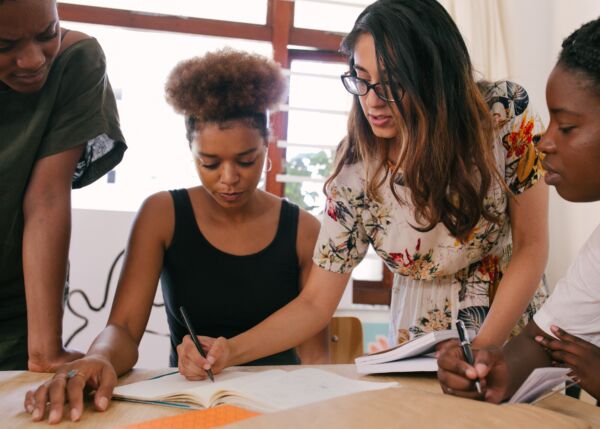Social Emotional Learning (SEL)
Project CLASS Teaches Essential Behavioral Social and Emotional Skills
Project CLASS concentrates on all children in a school learning a defined curriculum of foundational social/emotional skills. This curriculum is based upon the extensive research that validates the immediate and long-term benefits of social/emotional skills training in school-age children. These social/emotional skills include: Paying Attention, Following Instructions, Asking Permission, Accepting Feedback, Accepting No as an Answer, Using Kind Words, Making Good Choices, Problem-Solving, and Calming Down. These skills are the building blocks of relationships and vital to the development of behavioral health, mental health, values and character. These skills are critical determinants of success or failure, in school and in life.
Research has long shown positive outcomes in classrooms teaching social skills, including a decrease in behavior problems, increase in positive behavior and greater academic growth (Northwest Foundation for Children study, 1989).

Project CLASS includes a full-day core training for teachers and staff in the form of an intensive workshop experience that is highly interactive and skill-acquisition based, with a trainer-to-trainee ratio of 1:4. Through this training, teachers learn how to:
- teach foundational social skills to their students,
- implement proven teaching methods for maintaining these social skills,
- effectively and compassionately handle difficult behavioral situations with children, and
- maximize skill development, skill retention and on-going impact of the program by incorporating a variety of approaches and resources (such as songs, music, movements, role-play, posters) that key into brain research, effective modes for learning, and child development realities.
To ensure that the project’s impact is sustained, HAP provides ongoing follow-up services in the schools. HAP’s highly trained staff deliver a number of services, including:
- classroom lessons to model teaching social skills to students,
- in-classroom modeling of interactions to reinforce student use of social skills,
- small group pull-out or push-in sessions with students who have been identified by the school as needing focused attention to help them use the social skills on a more consistent basis,
- specialized interventions with individual students with behavior problems (i.e. difficulty getting along with others, managing their anger/emotions, behaviors that interfere with their ability to learn or are so disruptive that other students have difficulty learning),
- Parent education.
Research specific to Project CLASS showed that Project CLASS effectively develops social skills in children and effectively strengthens social skills teaching abilities in adults (Mena, 2001, 2005).

